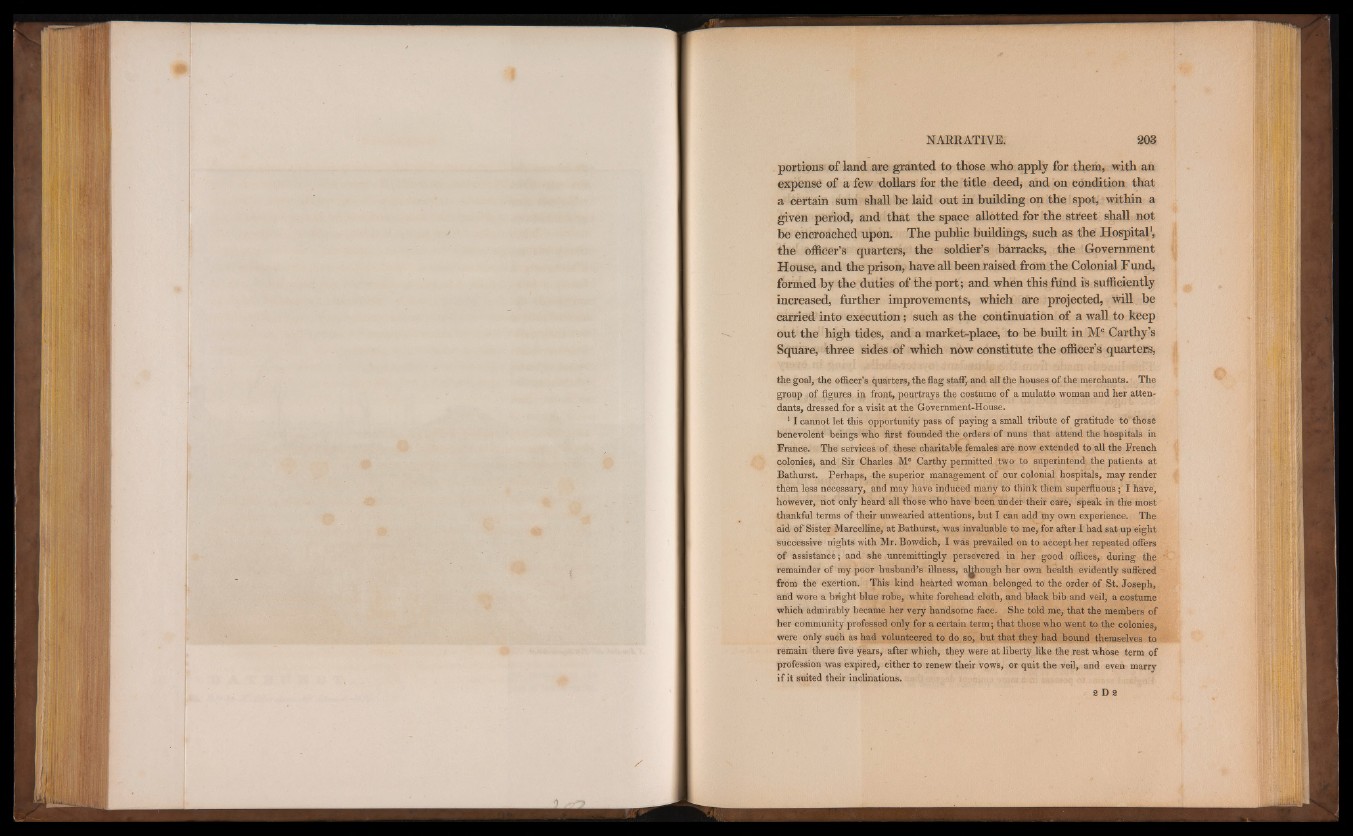
portions of land are granted to those who apply for them, with an
expense of a few dollars for the title deed, and on condition that
a certain sum shall be laid out in building on the spot, within a
given period, and that the space allotted for the street shall not
be encroached upon. The public buildings, such as the Hospital1,
the officer’s quarters, the soldier’s barracks, the Government
House, and the prison, have all been raised from the Colonial Fund,
formed by the duties of the port; and when this fund is sufficiently
increased, further improvements, which are projected, will be
carried into execution; such as the continuation of a wall to keep
out the high tides, and a market-place, to be built in Mc Carthy’s
Square, three sides of which now constitute the officer’s quarters,
the goal, the officer’s quarters, the flag staff, and all the houses of the merchants. The
group of figures in front, pourtrays the costume of a mulatto woman and her attendants,
dressed for a visit at the Government-House.
1 1 cannot let this opportunity pass of paying a small tribute of gratitude to those
benevolent beings who first founded the orders of nuns that attend the hospitals in
France. The services of these charitable females are now extended to all the French
colonies, and Sir Charles Mc Carthy permitted two to superintend the patients at
Bathurst. Perhaps, the superior management of o.ur colonial hospitals, may render
them less necessary, and may have induced many to think them superfluous; I have,
however, not only heard all those who have been under their care, speak in the most
thankful terms of their unwearied attentions, but I can add my own experience. The
aid of Sister Marcelline, at Bathurst, was invaluable to me, for after I had sat up eight
successive nights with Mr. Bowdich, I was prevailed on to accept her repeated offers
of assistance; and she unremittingly persevered in her good offices, during the
remainder of my poor husband’s illness, a^hough her own health evidently suffered
from the exertion. This kind hearted woman belonged to the order of St. Joseph,
and wore a bright blue robe, white forehead cloth, and black bib and veil, a costume
which admirably became her very handsome face. She told me, that the members of
her community professed only for a certain term; that those who went to the colonies,
were only such as had volunteered to do so, but that they had bound themselves to
remain there five years, after which, they were at liberty like the rest whose term of
profession was expired, either to renew their vows, or quit the veil, and even marry
if it suited their inclinations.